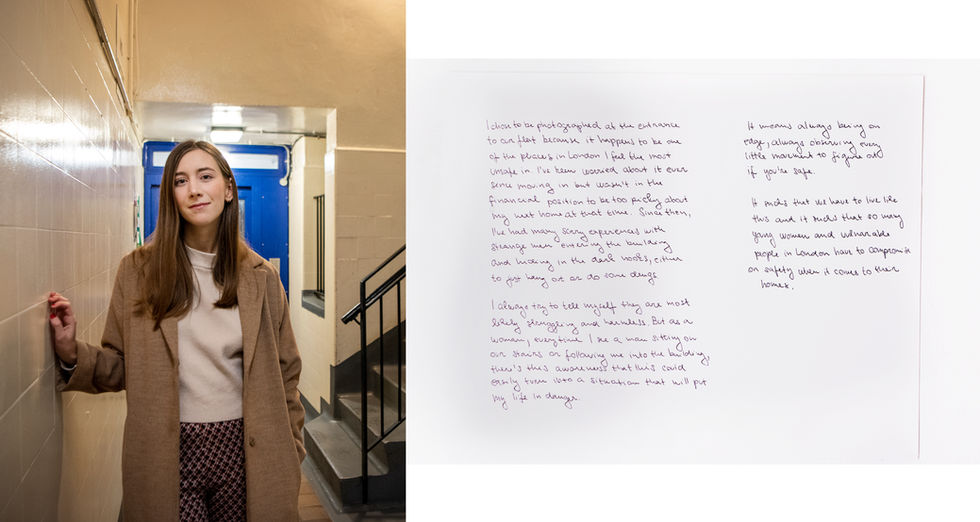
Courtesy of
Fanny Beckman
Ann Lesley BarTur Award
Fanny Beckman
Highly Commended
Fanny Beckman is a London-based photographer and public speaker raising awareness of social injustice, mainly from a feminist perspective. She studied Fine Art Photography at Gamleby School of Photography in her home country Sweden. It was during this time she realised how she could combine art and feminism.
Since 2016, she has freelanced as a photographer and public speaker. She has had numerous exhibitions highlighting subjects such as domestic abuse, mental health and marginalised people’s (un)safety in the public sphere. For example, she exhibited in the Swedish Parliament in November 2017, at Gallery Foto Nostrum in Barcelona in October 2019 (as one of the winners of the Julia Margaret Cameron Award), and at Landskrona Museum in April 2022.
Apart from using photography to challenge gender norms, Fanny Beckman conducts workshops and lectures for companies and universities who want to learn more about the male gaze and how to change the misogynistic depiction of women in the media. Her clients include Brighton Dome (2018 and 2019), Victoria & Albert Museum (2021), Triumph (2021) and the Prince’s Trust (2022).
Take Back the Streets
Brighton and London, England + Landskrona, Sweden
2021 - 2022
Sarah Everard was walking home from a friend in London when she was kidnapped and murdered in March 2021. A couple of days later, it was revealed that the perpetrator was a policeman. The murder shook all of England and started a discussion about women’s (un)safety in the public sphere. Historically, women have been asked what they wore when they were raped, how much they had to drink, and why they were walking home alone at night. Sarah Everard did everything “right”. She was walking near the streetlights, spoke to a friend on the phone, and wore jeans and a hoodie. This was the ultimate proof: It doesn’t matter what we wear or how we behave. It is never the victim’s fault.
Take Back the Streets portray women, non-binary people, and trans people in places they feel unsafe. Some of them have chosen places where they’ve been harassed, while others have chosen spots where they feel discomfort for other reasons. The series aims to start a conversation among the audience: To question victim blaming and how we can politically improve the safety for marginalised people in the public sphere. The project is also an opportunity for the people involved to take back places associated with fear. It is a project protesting for a better future.












